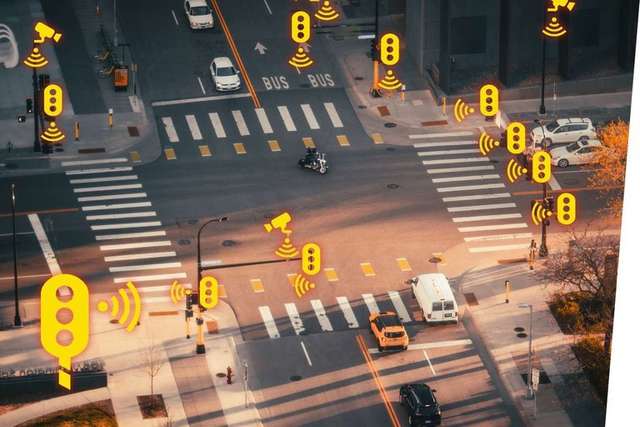Innovation & Tech
City Tests Smart Traffic Lights to Cut Congestion
Edmonton is piloting adaptive traffic signal technology along major corridors to improve traffic flow and reduce commuter times, with early results showing promising reductions in delays.
By By Rachel Summers • 2025-07-12

Edmonton is taking a high-tech approach to its traffic problems by testing smart traffic light systems along several of the city’s busiest corridors. The pilot project, launched in partnership with a Canadian transportation technology firm, uses real-time data to adjust signal timing and improve traffic flow.
The system relies on sensors embedded in roadways and cameras mounted on traffic poles to monitor vehicle counts, speeds, and congestion patterns. This information is processed instantly, allowing the lights to respond dynamically to changing conditions instead of operating on fixed timers.
City officials say the early results are encouraging. In test areas, average travel times during rush hour have decreased by up to 18 percent, and idling at intersections has been reduced significantly. “We’re seeing both efficiency gains and environmental benefits,” said transportation manager Chris Donnelly.
One of the pilot corridors, Jasper Avenue, has long been a source of frustration for commuters. Since the smart lights were installed, residents report smoother trips and fewer instances of vehicles blocking crosswalks due to poorly timed signals.
The technology also prioritizes public transit by extending green lights for approaching buses, helping improve on-time performance. Emergency vehicles are similarly recognized by the system, which can adjust signals to clear their path.
While the pilot is currently limited to select intersections, the city hopes to expand the program if results continue to trend positively. Officials are also exploring integration with a mobile app that could provide drivers with real-time route suggestions based on signal data.
Not everyone is convinced the new system will solve Edmonton’s traffic woes. Some residents have raised privacy concerns over the use of cameras, although the city maintains that no identifying information is stored. Others worry that technology alone cannot address issues caused by road design or driver behaviour.
A final evaluation report is expected early next year, after which city council will decide whether to invest in a citywide rollout. If approved, Edmonton could join a growing list of Canadian cities adopting adaptive traffic technology as part of broader smart city initiatives.